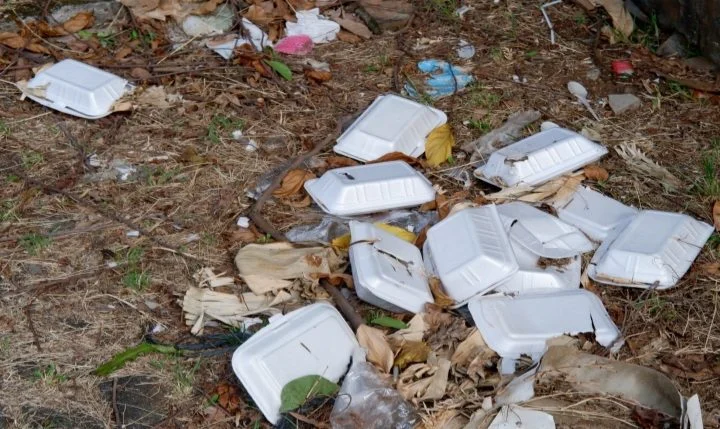A new ban on Styrofoam and single-use plastics in Lagos, Nigeria, is causing different opinions among residents.
In Lagos, the largest city in Nigeria, plastic waste is a big problem, blocking gutters and waterways. With over 20 million people, the city faces serious issues with waste and pollution. This led the authorities to announce a ban on Styrofoam and single-use plastics starting January 21.
On Thursday, officials decided to extend the enforcement of the ban by three weeks, giving producers and distributors more time to find reusable options.
Sustainable Alternatives
Some people are happy about the ban, while others are worried about the impact on business costs.
Traders like Angela Uloma are concerned that finding more sustainable alternatives will be more expensive. “Authorities should provide waste bins so people can properly dispose of takeaway plates,” Uloma says. “Styrofoam is the cheapest option for many people.”
Lagos officials have warned that traders and distributors who do not follow the ban could face heavy fines or even have their businesses shut down.
While some believe the ban is necessary, they are skeptical about how well the city can enforce the law. The ban will also require fast food businesses to switch to more sustainable packaging.
Glamour Adah, a digital marketer, says, “Styrofoam is a big problem in Nigeria, often blocking pipes and drains. I prefer reusable containers because you can use them multiple times.”
Education
Some people think that littering habits in the city show the need for better education and awareness.
Realtor Thelma Anu says, “The ban is good, but it’s not enough. There are many other things clogging the waterways, like plastic bottles and wrappers. The ban alone won’t solve the problem. Other measures should be put in place to prevent littering.”
Environmental campaigner Desmond Majekodunmi, who is also the chairman of the Lekki State Urban Forest and Animal Shelter Initiative, supports the ban.
“This ban is long overdue, and the situation is now urgent. It’s a serious health hazard,” says Majekodunmi. “But the government also needs to focus on educating people and convincing them to stop littering, rather than just enforcing the ban.”
Majekodunmi believes more should be done to change public opinion, so people want to help clean up the city. “We need to rethink how we handle waste. It’s time for everyone, not just Nigerians but people around the world, to change their relationship with nature,” he says.



















